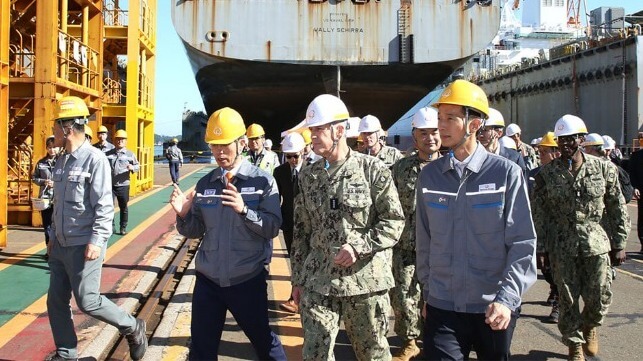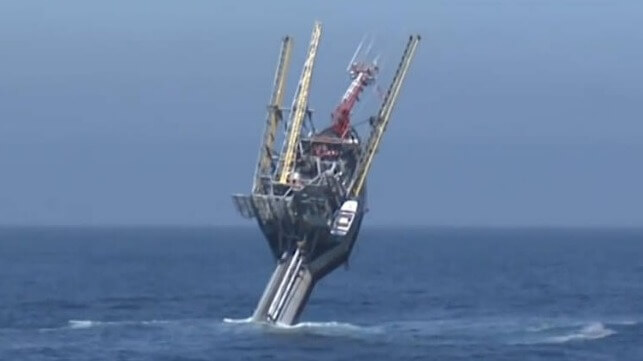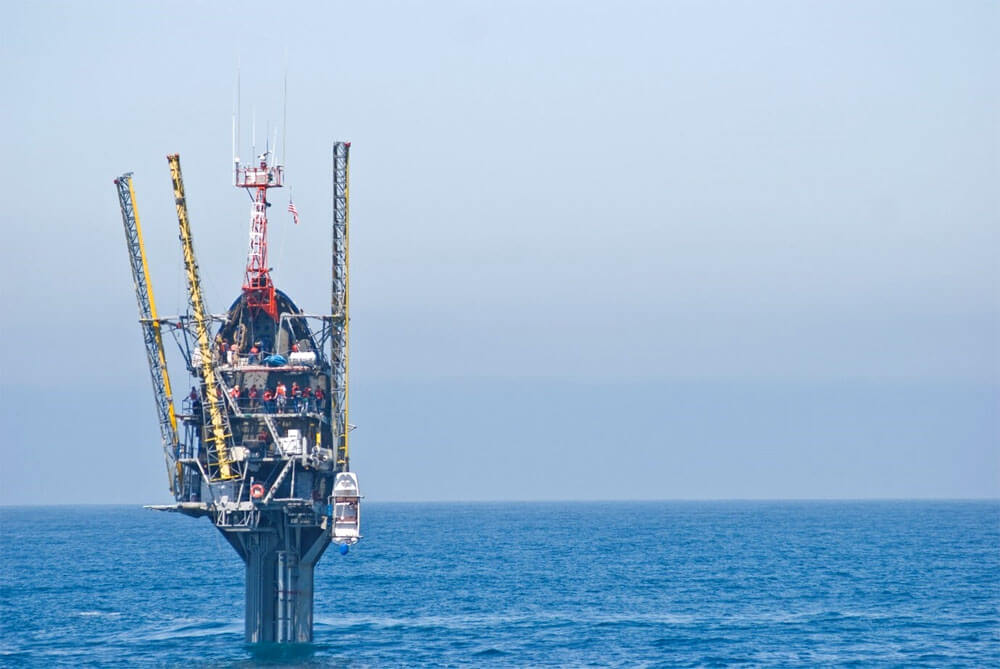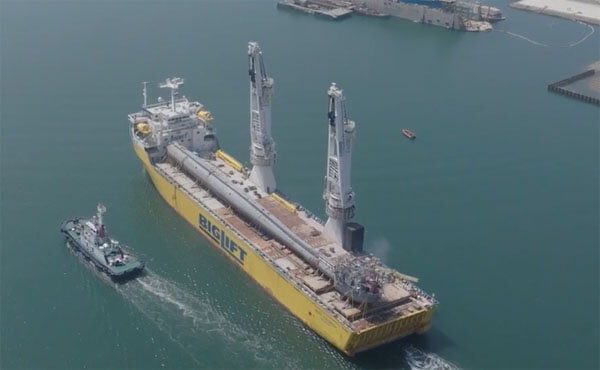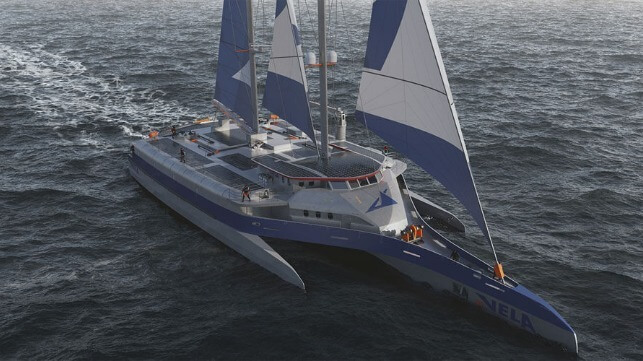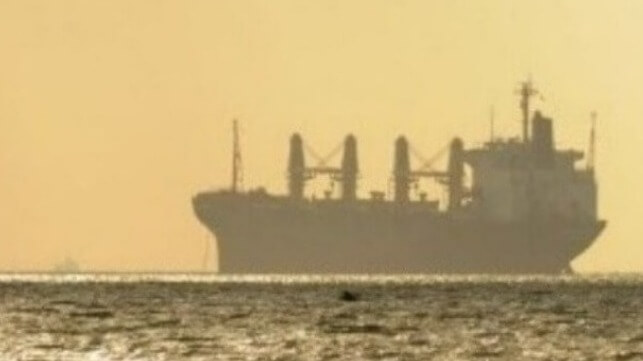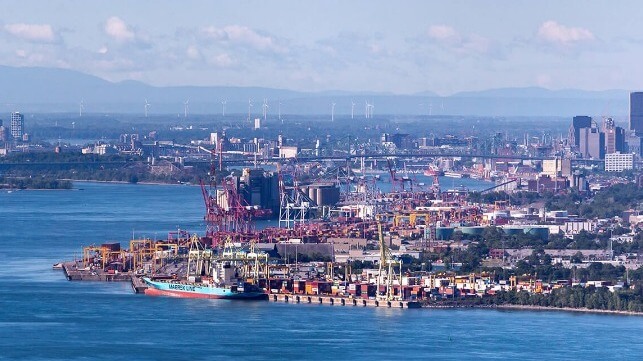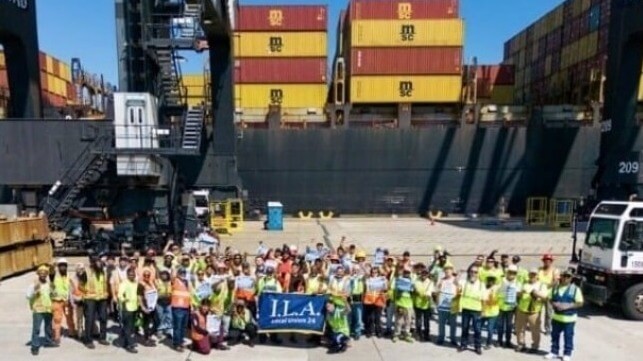October 25, 2024

Amazon CEO Jeff Bezos. (AFP/File / Jim WATSON)
Political commentator Elie Mystal on Friday called on Washington Post readers to cancel their subscriptions after news broke that the editorial board would not endorse a presidential candidate in the upcoming election.
Mystal expressed outrage after the Post announced it would return to a 1960 policy of not issuing endorsements — and legendary former editor Marty Baron argued the reason was fear of former President Donald Trump.
"I'm getting sick of people saying 'cancelling subscriptions hurts the writers not the owners,'" Mystal wrote on X. "If we're being real ... NOTHING *hurts* billionaires. Being a billionaire literally buys you out of consequences."
Sir William Lewis, the knighted British executive who serves as publisher and CEO of the Post, argued in an editorial Friday the decision was not based on the characters of either Trump or Vice President Kamala Harris, but on American values.
"We recognize that this will be read in a range of ways, including as a tacit endorsement of one candidate, or as a condemnation of another, or as an abdication of responsibility," wrote Lewis.
"We see it as consistent with the values The Post has always stood for and what we hope for in a leader: character and courage in service to the American ethic, veneration for the rule of law, and respect for human freedom in all its aspects."
Baron disagreed.
"This is cowardice, with democracy as its casualty," he replied. "[Trump] will see this as an invitation to further intimidate owner [Bezos] (and others). Disturbing spinelessness at an institution famed for courage."
Amid this debate, Mystal called on readers to hit Bezos where he argued it might hurt him the most — despite the impact it might have on the paper's journalists.
"Cancelling a subscription to a publication is pretty much the only way to register DISPLEASURE with the publication's offerings," he wrote.
"The writers cannot be expected to resign en masse (newsflash, writers are generally poorly paid and having any kind of actually paying journalism job is something most people need to hold onto). But if the WaPo loses stature and reach, some will find better places to work."
Mystal made his callout plain in a concluding X post:
"So, yes, you should cancel your WaPo subscription based on the owner's pathetic, punk decision to capitulate to fascism," he wrote. "If Bezos is going to use the WaPo as his personal plaything, the least we can do is smash his toy."
America's influential Washington Post newspaper announced Friday – less than two weeks before Election Day – that it would not endorse a candidate for US president in the tightly contested race. The Post's move comes days after the Los Angeles Times announced a similar decision, triggering the resignation of its editorial page editor.
Issued on: 25/10/2024 -
By: NEWS WIRES

Less than two weeks before Election Day, The Washington Post said Friday it would not endorse a candidate for president in this year's tightly contested race and would avoid doing so in the future — a decision immediately condemned by a former executive editor and one that the current publisher insisted was “consistent with the values the Post has always stood for.”
In an article posted on the front of its website, the Post — reporting on its own inner workings — also quoted anonymous sources within the publication as saying that an endorsement of Kamala Harris over Donald Trump had been written but not published. Those sources told the Post reporters that the company's owner, billionaire Jeff Bezos, made the decision.
The publisher of the Post, Will Lewis, wrote in a column that the decision was actually a return to a tradition the paper had years ago of not endorsing candidates. He said it reflected the paper's faith in “our readers' ability to make up their own minds.”
“We recognize that this will be read in a range of ways, including as a tacit endorsement of one candidate, or as a condemnation of another, or as an abdication of responsibility. That is inevitable,” Lewis wrote. “We don’t see it that way. We see it as consistent with the values The Post has always stood for and what we hope for in a leader: character and courage in service to the American ethic, veneration for the rule of law, and respect for human freedom in all its aspects.”
Watch moreIn Pennsylvania, local officials are fighting the spread of misinformation about the voting process
Lewis cited the Post's history in writing about the decision. According to him, the Post only started regularly endorsing candidates for president when it backed Jimmy Carter in 1976.
The Post said the decision had “roiled" many on the opinion staff, which operates independently from the Post's newsroom staff — what is known commonly in the industry as a “church-state separation" between those who report the news and those who write opinion.
The Post's move comes the same week that the Los Angeles Times announced a similar decision, which triggered the resignations of its editorial page editor and two other members of the editorial board. In that instance, the Times' owner, Patrick Soon-Shiong, insisted he had not censored the editorial board, which had planned to endorse Harris.
“As an owner, I’m on the editorial board and I shared with our editors that maybe this year we have a column, a page, two pages, if we want, of all the pros and all the cons and let the readers decide,” Soon-Shiong said in an interview Thursday with Spectrum News. He said he feared endorsing a candidate would add to the country’s division.
Many American newspapers have been dropping editorial endorsements in recent years. That is in large part because at a time readership has been dwindling, they don’t want to give remaining subscribers and news consumers a reason to get mad and cancel their subscriptions.
Martin Baron, the Post's executive editor for 2012 to 2021, immediately condemned the decision on X, saying it empowers Trump to further intimidate Bezos and others. "This is cowardice, with democracy as its casualty," he wrote. “Disturbing spinelessness at an institution famed for courage.”
The decisions come at a fraught time for American media, newspapers in particular. Local news is drying up in many places. And after being upended by the economics of the internet and drastically evolving reader habits, the top “legacy media” — including the Post, The New York Times and others — have been struggling to keep up with a changing landscape.
Nowhere is this more true, perhaps, than in the political arena. The candidates this year have been rejecting some mainstream interviews in favor of podcasts and other niche programming, and many news organizations are vigorously ramping up to combat misinformation in near-real time on Election Day, Nov. 5.
Trump, who for years called the media covering him “the enemy of the people,” has returned to such rhetoric in recent days. His vitriol in particular is aimed at CBS, whose broadcast license he has threatened to revoke.
On Thursday, at a rally in Arizona, he returned to the language explicitly once more.
“They’re the enemy of the people. They are,” Trump said to a jeering crowd. “I’ve been asked not to say that. I don’t want to say it. And some day they’re not going to be the enemy of the people, I hope.”
For the Post, the decision is certain to generate debate beyond the news cycle. It seemed to acknowledge this with a note from the paper's letters and community editor at the top of the comments section on the publisher’s column: "I know many of you will have strong feelings about this note from Mr. Lewis."
Indeed, by midafternoon, the column had elicited more than 7,000 comments, many critical. Said one, riffing off the Post's slogan, “Democracy Dies in Darkness": “Time to change your slogan to `Democracy dies in broad daylight.'”
(AP)
October 25, 2024

William Lewis, Washington Post’s CEO and publisher. Photo: Andy Rain/Shutterstock
A Friday decision by the top management of the Washington Post to not make a 2024 presidential endorsement resulted in a flood of complaints, criticism and outrage on the media company's website after controversial publisher William Lewis issued an official statement.
On the heels of the LA Times following a similar path and not endorsing either Vice President Kamala Harris or ex-president Donald Trump at the direction of billionaire owner Patrick Soon-Shiong who overruled his editorial board which led to a flood of resignations, Lewis announced a parallel move.
In his letter to readers, Lewis, who has been under fire multiple times for spiking unflattering stories about himself, wrote, "The Washington Post will not be making an endorsement of a presidential candidate in this election. Nor in any future presidential election," and reached back to a 1960 decision to not endorse presidential candidates as a justification.
He later wrote, "We recognize that this will be read in a range of ways, including as a tacit endorsement of one candidate, or as a condemnation of another, or as an abdication of responsibility. That is inevitable. We don’t see it that way," before adding, "We also see it as a statement in support of our readers’ ability to make up their own minds on this, the most consequential of American decisions — whom to vote for as the next president."
Lewis' announcement also drew a harsh rebuke from legendary former WaPo editor Marty Baron.
Subscribers to the paper that adopted "Democracy dies in darkness" as its slogan immediately flooded the comment section condemning the decision, announcing they would be canceling their subscriptions and calling out Lewis and Amazon billionaire owner Jeff Bezos for "cowardice" in the face of Donald Trump's possible wrath.
In one cutting comment, a reader wrote, "Democracy dies in kowtowing to fascists."
Wyatt Merrit wrote, "Just cancelled my subscription, like so many others. Unfortunately my renewal date is in September; I wish I could get that money back. The extra 11 months of access is certainly worthless. There is no reason to read a media source which has discredited and debased itself to this extent. Surely there’s a critical mass of journalists with integrity out there, and I hope they find a way to create a responsible news outlet soon. "
Another reader wrote, "This is plain old cowardice," while another added, "Despicable, and this gaslighting as to the 'reason' is an absolute insult. At least tell the truth. As it is, another cancelled subscription."
"I have been a subscriber to your paper for over 20 years. I am shocked by your cowardly move to not endorse Kamala Harris. You are no longer a credible news organization. I guess Democracy truly does die in the darkness. You should be embarrassed by your disgraceful management of what used to be an outstanding media outlet," law877 contributed and then announced, "I just officially canceled my subscription, and you will never get my business again."
On X, Rep. Ted Lieu (D-CA) wrote, "The first step towards fascism is when the free press cowers in fear."
Under the "DemocracyDiesInDarkness" hashtag, former Barack Obama adviser Tommy Vietor suggested, "The WaPo endorsing Harris would move exactly zero voters her way, but still lol at this cowardly shit from the crew that brought us 'democracy dies in darkness.'"
Former editor Baron wrote, "This is cowardice, with democracy as its casualty. [Trump] will see this as an invitation to further intimidate owner [Bezos] (and others). Disturbing spinelessness at an institution famed for courage."
Democratic strategist Simon Rosenberg warned, "What’s happening at the WaPo and LATimes is not about the editorials. It’s a warning to editors and writers to not do anything 'foolish' in the closing days. It’s a clear call for self-censorship."
‘Reprehensible’: Big names screenshot their unsubscriptions from Washington Post
Erik De La Garza
October 25, 2024

The Washington Post (AFP)
A drumbeat of disapproval over the Washington Post’s refusal to endorse a presidential candidate took over social media Friday with numerous users posting screenshots of their canceled subscriptions to protest the publication’s decision.
“I have subscribed to the Washington Post since 1993, but I just canceled my subscription today because of the paper’s abdication of duty to endorse a candidate in the most consequential election of my lifetime. Good riddance,” author and former Clinton White House aide Keith Boykin wrote on X.
“The Washington Post editorial board is a disgrace,” actor Rob Reiner declared to his 2.3 million X followers. “For the newspaper that exposed the Pentagon Papers and the Watergate scandal to not take a position and endorse a candidate in the most consequential Presidential election in 165 years is reprehensible.”
Author Stephen King also took to social media Friday to tell his 7 million followers that he had canceled his WaPo subscription after five years, while conservative lawyer George Conway simply posted a screenshot of an email confirming that his subscription had also been canceled.
“We’re sorry to see you go,” the email read.
But not all were in favor of the move, with some like former Tommy Vietor, a former Obama staffer, pointing out potential unintended consequences by the expression of displeasure.
“I understand the anger at Jeff Bezos and the Washington Post for its endorsement decision, but cancelling your subscription means less revenue to pay all the Post's reporters. Do what you gotta do but Bezos won't feel it in his pocket while some great journalists might,” he wrote.
WaPo reporter Carol Leonning also urged her followers against canceling their subscriptions, warning: “It will only hurt the independent newsgathering my colleagues and I strive to do for you every day.”
But the controversy still continued to flare up online.
“Hey @washingtonpost, you can't make a decision, so I had to... #Unsubscribe,” musician Rich Feinstein posted to X.
“If you need a script for your letter to the editor after you unsubscribe to the Washington Post, you can use mine if you want,” X user Nicole James offered her followers above a screenshot of a letter that, in part, says the WaPo’s decision “further buoyed each and every one of Donald Trump’s lies.”
Daniel Hampton
October 25, 2024

More than a dozen Washington Post columnists signed on to a scathing response to their own leadership's decision not to endorse a presidential candidate, calling the choice a "terrible mistake" and an "abandonment" of its "fundamental editorial convictions." (Photo credit: Dennis Diatel / Shutterstock)
More than a dozen Washington Post columnists signed on to a scathing response to their own leadership's decision not to endorse a presidential candidate, calling the choice a "terrible mistake" and an "abandonment" of its "fundamental editorial convictions."
For the first time in more than three decades, the Post, which is owned by billionaire Amazon founder Jeff Bezos, said it would not endorse a candidate in the presidential race. The move led to widespread backlash — and even a flurry of subscription cancelations from big names — as critics pointed to the newspaper's slogan: "Democracy dies in darkness."
The Washington Post reported, citing four people briefed on the decision, that Bezos made the decision.
Fourteen columnists signed onto a letter posted to the Post's website that called the decision "a terrible mistake."
"It represents an abandonment of the fundamental editorial convictions of the newspaper that we love," the columnists wrote. "This is a moment for the institution to be making clear its commitment to democratic values, the rule of law and international alliances, and the threat that Donald Trump poses to them — the precise points The Post made in endorsing Trump’s opponents in 2016 and 2020."
The columnists said there is "no contradiction" between the paper's role as an independent newspaper and its political endorsements, "both as a matter of guidance to readers and as a statement of core beliefs."
"That has never been more true than in the current campaign," they said. "An independent newspaper might someday choose to back away from making presidential endorsements. But this isn’t the right moment, when one candidate is advocating positions that directly threaten freedom of the press and the values of the Constitution."
Signing onto the column: Karen Attiah, Perry Bacon Jr., Matt Bai, E.J. Dionne Jr., Lee Hockstader, David Ignatius, Heather Long, Ruth Marcus, Dana Milbank, Alexandra Petri, Catherine Rampell, Eugene Robinson, Jennifer Rubin and Karen Tumulty.
Erik De La Garza
October 25, 2024

Amazon chief executive and new Washington Post owner Jeff Bezos, pictured on Sept. 6, 2013. [AFP]
Billionaire CEO Jeff Bezos’ decision to scrap the Washington Post's 36-year tradition of endorsing a presidential candidate is a lesson for business leaders around the world seeing him “getting in line” with the former president, a columnist wrote Friday
The editorial referred to it as “signaling his submission” to Donald Trump,
While critics immediately pounced on the non-endorsement by the Washington Post, which is owned by Bezos and reported that he made the decision, The Bulwark's Jonathan Last wrote that the development is more a story about business than it is about journalism.
“It’s a situation analogous to what we saw in Russia in the early 2000s: We are witnessing the surrender of the American business community to Donald Trump,” Last wrote.
He noted that following Trump’s 2016 victory, Bezos found himself on the receiving end of Trump’s threats due to the paper’s aggressive reporting of the former president’s administration.
“And that’s what this story is about: It’s about the most consequential American entrepreneur of his generation signaling his submission to Trump — and the message that sends to every other corporation and business leader in the country. In the world,” according to the editorial.
Last argued that the situation is reminiscent of Vladimir Putin’s rise in Russia after jailing the country's wealthiest man – Mikhail Khodorkovsky – who “had the kind of wealth and power that made him untouchable” and floated the idea of one day running for office.
“And so the oligarchs fell in line and ceased to be a source of concern to Putin. Instead of alternative power centers, they became vassals. Which is exactly what Jeff Bezos has just taught Jamie Dimon and every other important American businessman,” the editorial said.
It added: “Just the fact that he has an even-money chance to become president was threat enough” for Bezos “to secure his compliance” to Trump.
Last concluded by warning readers that the guardrails are already collapsing “before a single state has been called.”














